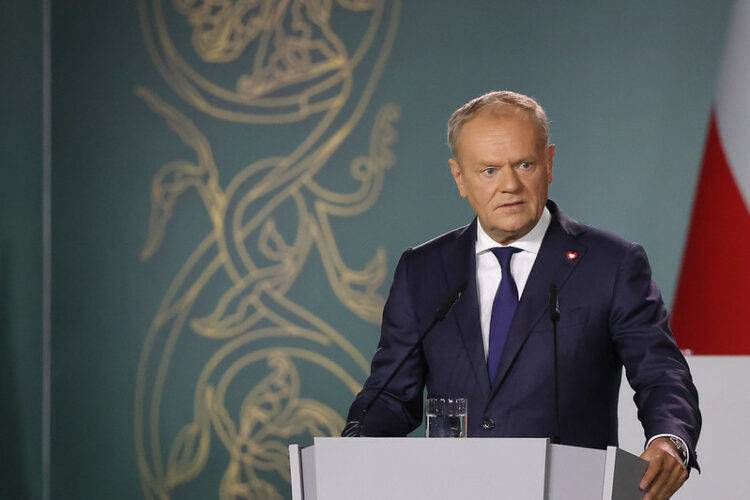Polish Prime Minister Donald Tusk has introduced a new “national doctrine” aimed at positioning Poland as the leading military and economic power in Central and Eastern Europe. Announced during a speech in Gniezno, the historic seat of Polish statehood, the doctrine—dubbed the “Piast Doctrine”—emphasizes strength, independence, and regional leadership.
A Doctrine Rooted in History
Tusk’s announcement coincided with the millennium celebrations of King Bolesław I the Brave’s coronation in 1025, a symbolic moment in Polish history. Drawing parallels to the Piast dynasty, which established Poland’s early statehood, Tusk stated:
“Maybe today it is worth announcing a new national doctrine, the Piast doctrine, based on strength—independence and affiliation based on strength.”
BREAKING:
— Poland 24 🇵🇱 (@poland24com) April 26, 2025
PM Donald Tusk: Poland starts talks to amend Constitution, mandating 4% GDP defense spending. pic.twitter.com/EzCleggqk7
He outlined three pillars of the doctrine:
- Building the strongest army in the region.
- Developing the strongest economy in the region.
- Establishing a strong political position within Europe.
Emphasizing unity, Tusk declared:
“We are a great nation, together we create a political community and today we can say with full conviction that no party, no politician has a monopoly on Polishness. There must be a place for every Poland and every Pole under the white and red flag. Poland is one and Poland is immortal.”
Military Ambitions Amid Geopolitical Tensions
The doctrine emerges against a backdrop of heightened security concerns in Europe, particularly due to Russia’s ongoing aggression in Ukraine and uncertainties surrounding U.S. commitments to NATO under President Donald Trump’s administration. Poland has been a staunch supporter of Ukraine and has expressed fears that Russian expansion could threaten its own security.
In response, Tusk has proposed significant military enhancements:
- Expansion of Armed Forces: Plans to increase the Polish military to 500,000 personnel, including reservists, positioning it as the largest in the European Union.
- Universal Military Training: Introduction of military training for all adult males, inspired by Switzerland’s model, to bolster national defense readiness.
- Defense Spending: Commitment to allocate at least 4% of GDP to defense, the highest among NATO members, with discussions to constitutionally mandate this expenditure.
- Nuclear Capabilities: Consideration of acquiring nuclear weapons and withdrawing from international treaties banning certain munitions, reflecting a shift towards a more assertive defense posture.
Economic Strategy: “Repolonization” and Investment
Parallel to military initiatives, Tusk’s doctrine emphasizes economic strength through a strategy of “repolonization,” aiming to increase national control over key economic sectors. This approach includes:
- Domestic Investment: A record-breaking investment plan of up to PLN 700 billion (approximately €160 billion) in 2025, focusing on science, energy transformation, modern technologies, and infrastructure development.
- Support for Polish Enterprises: Prioritizing Polish companies in public procurement and strategic projects to strengthen domestic industries.
- Economic Deregulation: Efforts to simplify business regulations and reduce bureaucratic obstacles, with the aim of enhancing competitiveness and efficiency.
Political Implications and European Relations
Tusk’s doctrine also seeks to elevate Poland’s political influence within the European Union. By asserting a leadership role in regional security and economic development, Poland aims to become a central player in shaping EU policies. However, this assertiveness has led to tensions with some EU member states, particularly regarding defense spending and approaches to the Green Deal.
President Andrzej Duda has echoed concerns about the EU’s unity, criticizing what he describes as “forced, artificial unity” and advocating for a more balanced approach that respects the sovereignty of individual member states.
Conclusion
The unveiling of the Piast Doctrine marks a significant shift in Poland’s national strategy, emphasizing military strength, economic independence, and political leadership. Rooted in historical symbolism, the doctrine reflects Poland’s response to contemporary geopolitical challenges and its aspirations to play a more prominent role on the European stage. As the doctrine’s implementation unfolds, its impact on Poland’s domestic affairs and international relations will be closely monitored.


















